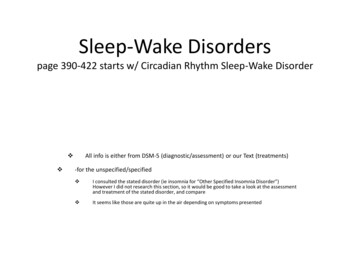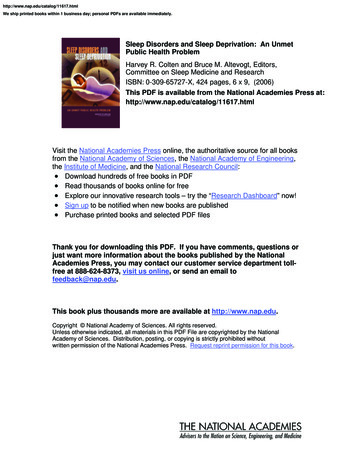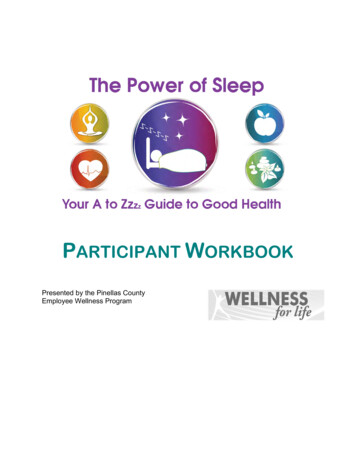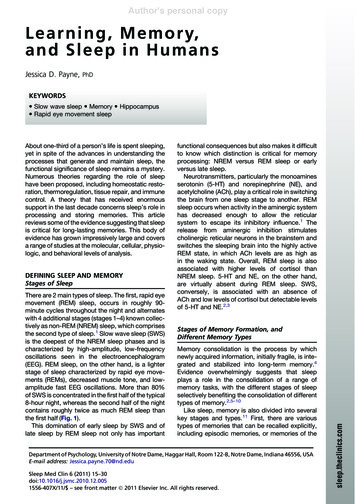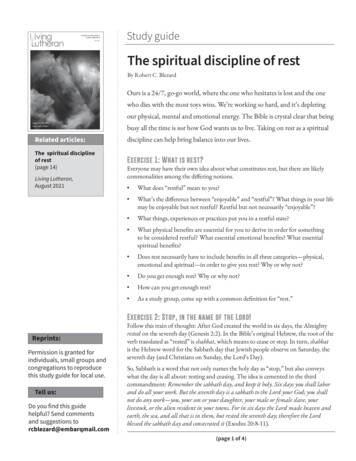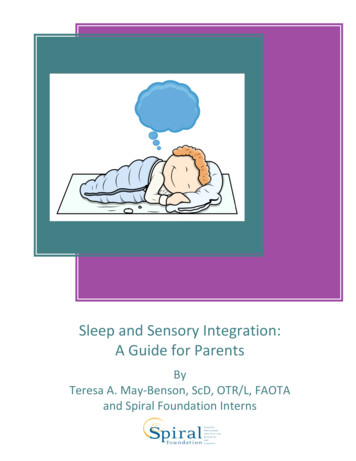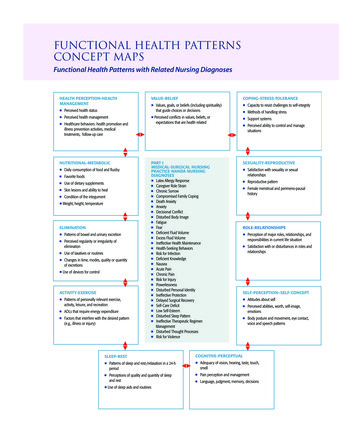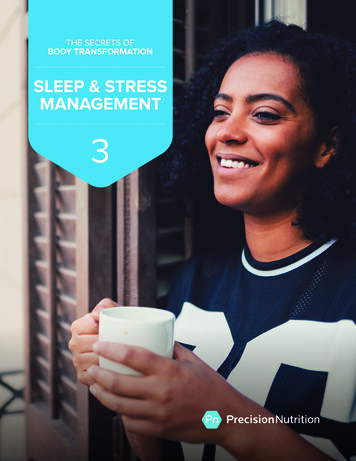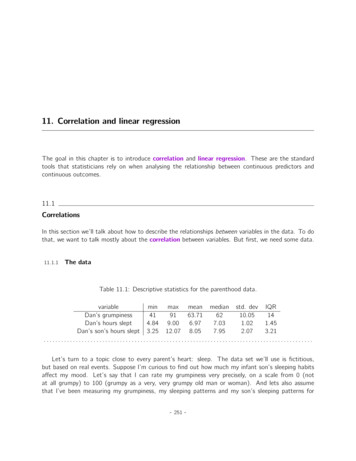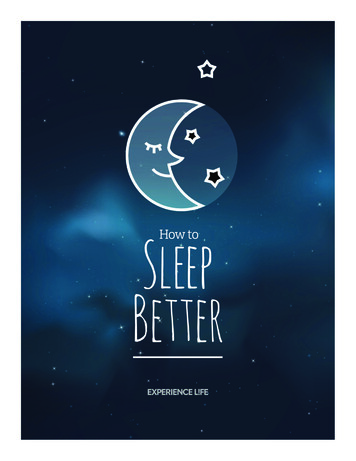
Transcription
SleepBetterHow to
Having troublenodding off?Join the club. More than one third ofAmericans aren’t getting enough sleep.Sleep is essential to our mental and physical health, but we are so used tobeing sleep deprived “that most of us don’t know what it feels like to be fullyalert and awake,” says sleep researcher James Maas, PhD. “People devaluesleep and are completely unaware of what happens to them when they havea deficit.”When we sacrifice sleep, everything from our personal health, ourrelationships, and our sense of wonder gets diminished. “Sleep is the food ofthe brain,” says sleep researcher David Gozal, MD, and “we are starving.”Eager to get more Zs and reclaim the rest you need?Here are 12 strategies.
1.Stick to aSleep ScheduleIt may not sound fun, but keeping a consistent sleep and wake time— even on the weekends — is the most important thing you can doto establish good sleep habits. Deviating 30 minutes on either sideis fine, but that’s it — no matter how tempting it is to stay up until 3a.m. on the weekend and sleep until brunch.José Colón, MD, MPH, author of The Sleep Diet: A Novel Approachto Insomnia, advises not sleeping past 7 a.m. An early-rising routinehelps ensure that melatonin will naturally start to rise around 8 or 9p.m., which helps you grow sleepier in time to knock off by 11 p.m.
2.Lay Off theCaffeineEven in small doses, caffeine can block the neurotransmitters thatyour body produces to calm you down and make you sleepy.If you’re having sleep issues, try cutting out all caffeinated beverages— even your morning cup of coffee or black tea.
3.Get Some SunNatural sunlight helps the body’s internal biological clock reset itselfeach day and release hormones that are vital to healthy sleep. Try toget at least 30 minutes of exposure to natural sunlight daily.
4.Time YourExercise WiselyThe best time to exercise, says functional-medicine doc Frank Lipman,MD, is four to six hours before falling asleep, but people might be morelikely to stick to a routine if they work out first thing in the morning.Try to avoid exercising after 8 p.m., he adds, because it might be toostimulating to your system.
5.Avoid AlcoholRight Before BedtimeDrinking may reduce the time it takes to fall asleep, but it tends todelay the onset of REM sleep, which studies have shown can translateinto less restful sleep overall.If you’re going to imbibe, limit it to one drink with dinner, at least threehours before bed. This gives your body time to process the alcoholwell before lights-out.
6.Keep YourBedroom CoolThe ideal sleeping temperature for most people is between 60 and 65degrees F.“Lowering ambient temperature sends a feedback signal to the brain’s sleepcenter that it’s nighttime, and that it needs to release more sleep hormones,”says Lipman.
7.Create anElectronic SundownAn hour or two before going to bed, turn off all electronic devices and createan “electronic sundown,” says Lipman. After dark, the blue light from atelevision, computer, phone, and tablet screen — as well as energy-efficientlight bulbs — can be a surprisingly powerful sleep disrupter.If it’s not feasible to shut down all your electronics, try an app that dimsblue light on smartphones, tablets, and computers, such as f.lux for Apple orTwilight for Android.Also, keep lamps on their lowest setting after dinner, and consider getting ared light bulb for the bedroom. Not only does red light look romantic, but thebrain associates it with the end of the day and the waning of sunlight.
8.Develop aBedtime RoutineCreate a relaxing bedtime routine — take a warm bath, read a novel,do some breathing exercises, listen to calming music, or have a cup ofherbal tea.The practice is up to you, but the key is to be consistent. Restorativerituals send a signal to your body clocks about what’s coming next —sleep — so they can align.
9.Keep YourBedroom DarkEven a little bit of light in the bedroom can interfere with your body’sproduction of sleep hormones. In addition to covering the lights ofelectronic devices — and don’t forget the alarm clock — use lightblocking shades to cover the windows.
10.Ditch theSleeping PillsInstead of using sleeping pills, which simply mask underlying problems,try mellowing supplements or herbs, Lipman suggests.“Magnesium can be helpful, as can calcium and melatonin,” he notes.“The amino acids L-theanine, 5 HTP, taurine, and GABA, and herbs likelemon balm, passionflower, chamomile, magnolia, and valerian root, canalso help. Take them about 30 minutes before bedtime.”
11.ClearYour MindDon’t make bedtime the time to solve all your problems. Make a to-do listfor the next day, and then set it aside.If you wake up with a thought, write it down immediately so you don’ttoss and turn all night worrying you’ll forget.
12.Don’t Lie inBed AwakeIf you can’t fall asleep within 30 minutes, get out of bed and go toanother room. Do something restful until you feel sleepy, and then goback to bed.
sleep and are completely unaware of what happens to them when they have a deficit.” When we sacrifice sleep, everything from our personal health, our relationships, and our sense of wonder gets diminished. “Sleep is the food of the brain,” says sleep
